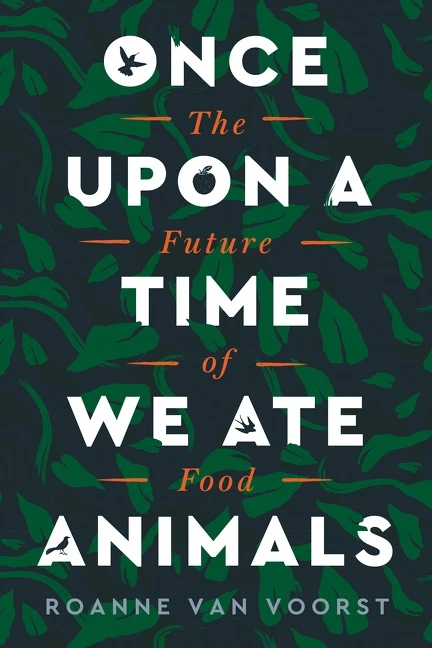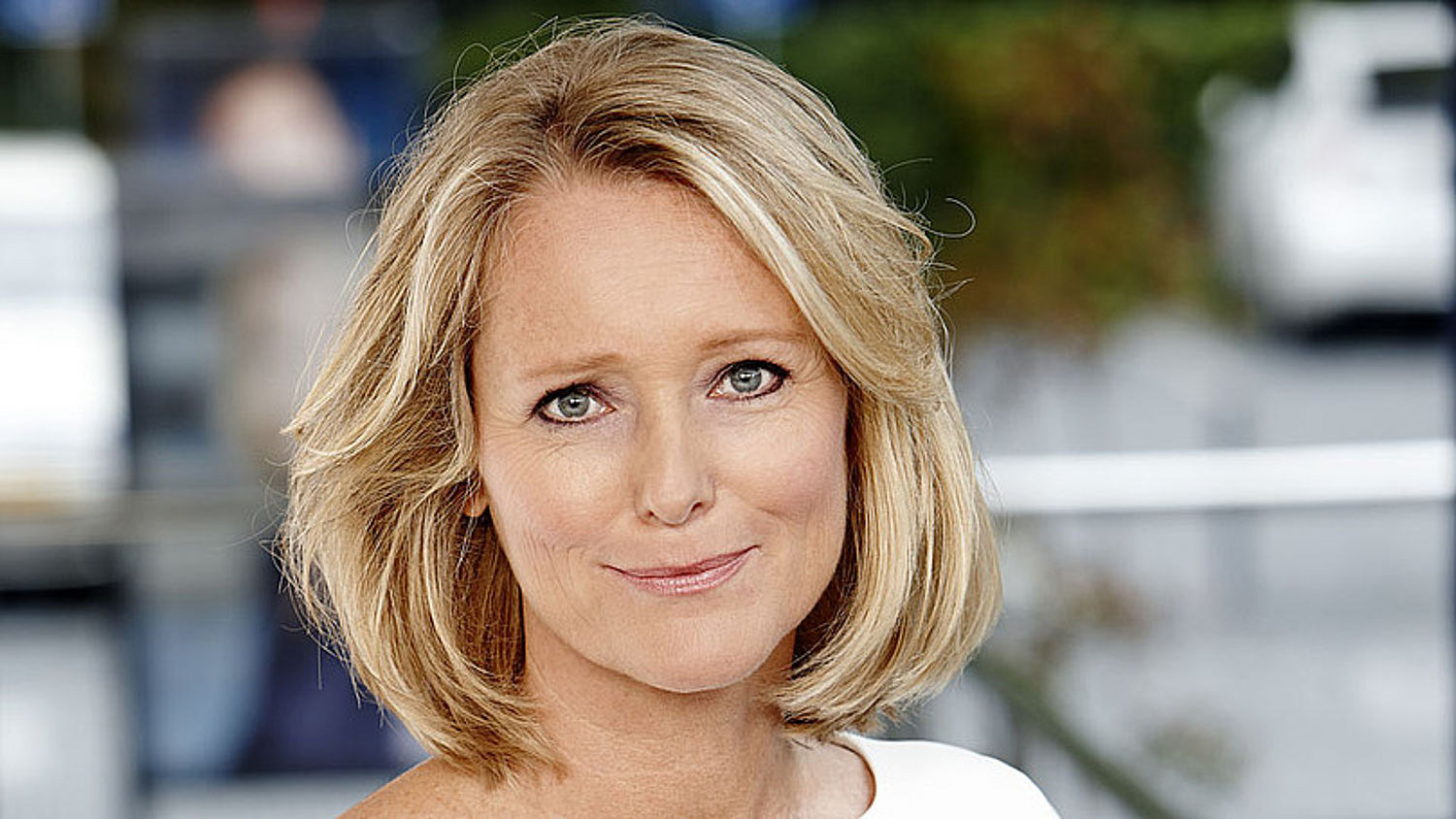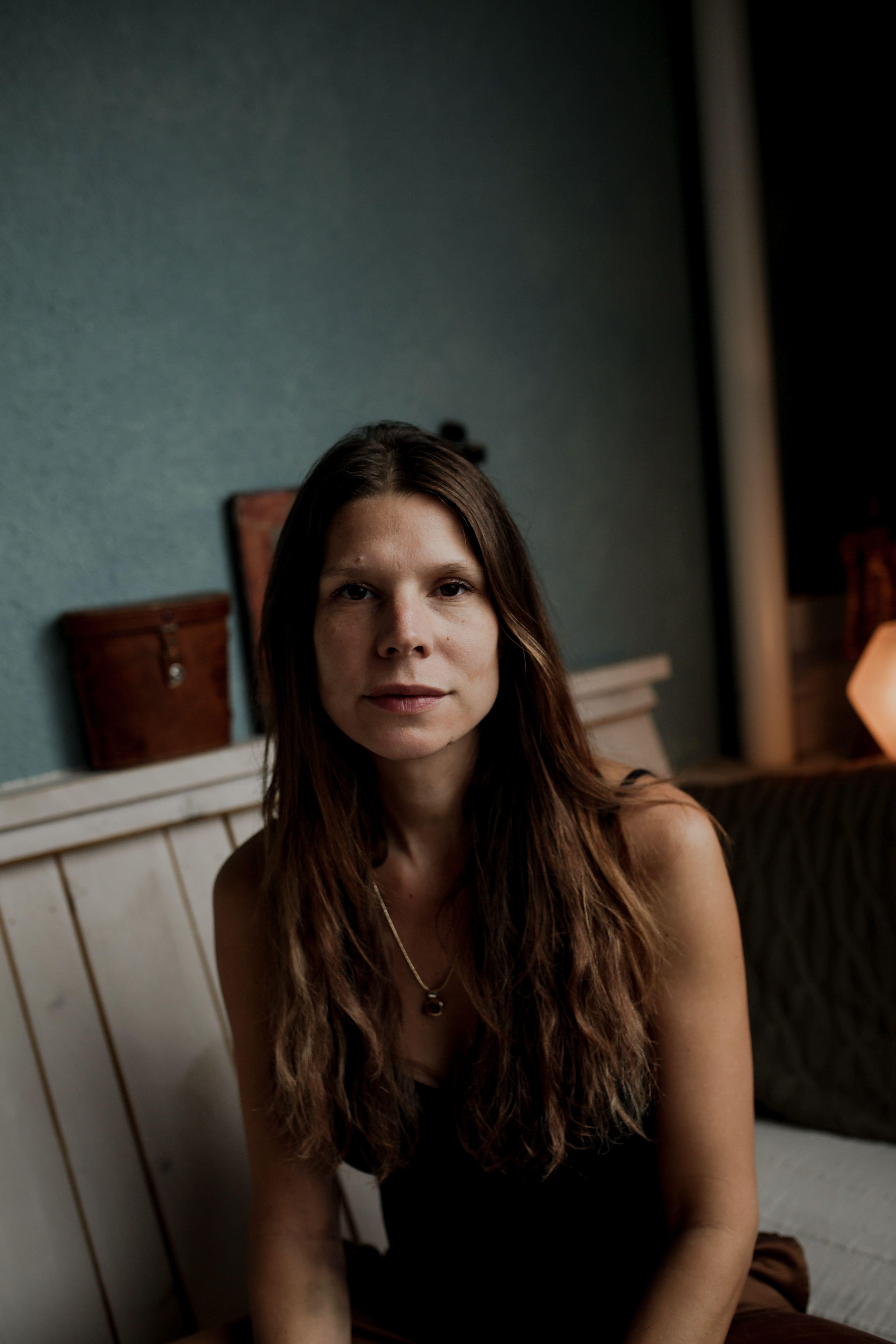
Once Upon A Time We Ate Animals
- The future of food
Combining the ethical clarity of Jonathan Safran Foer’s Eating Animals with the disquieting vision of Alan Weissman’s bestseller The World Without Us, a thought-provoking, entertaining exploration of a future where animal consumption is a thing of the past.
Though increasing numbers of people know that eating meat is detrimental to our planet’s health, many still can’t be convinced to give up eating meat. But how can we change behavior when common arguments and information aren’t working?
Acclaimed anthropologist Roanne Van Voorst changes the dialogue. In Once Upon a Time We Ate Animals, she shifts the focus from the present looking forward to the future looking back—imagining a world in which most no longer use animals for food, clothing, or other items. By shifting the viewpoint, she offers a clear and compelling vision of what it means to live in a world without meat.
Hopeful and persuasive, Once Upon a Time We Ate Animalsoffers a tantalizing vision of what is not only possible but perhaps inevitable.
A massive shift is already taking place—everything van Voorst covers in this book has already been invented and is being used today by individuals and small organizations worldwide.

"This book will change your life. Start today."
Antoinette Hertsenberg, TV-presenter
Reviews
Hear what various readers have to say.
"A new course in times of climate shame and fear"
Het Parool
"A stimulating plea for a vegan future"
HP/De Tijd
"One becomes immune to numbers. Where this author has me, however, is with her reasonableness."
NRC Handelsblad
"Once we ate animals is an indispensable book for vegetarians, flexitarians and convinced meat eaters."
Women's Health
"In her book, Van Voorst discusses dozens of clues to her positive future outlook, derived from daily practice and history, and cleverly alternates them with personal experiences, smart observations"
de Volkskrant
"Veganism will be the norm, and our grandchildren will wonder how we could ever have eaten animals. Roanne van Voorst is optimistically preparing us for this"
Book newspaper
About the author


Roanne’s answers to frequently asked questions
Is our relationship with animals and the environment actually the biggest problem facing humanity, shouldn't we focus more on things people do to each other, such as war, poverty, female circumcision, and bullying at school?
Maintaining and expanding factory farming is not the worst harm we humans can do, but it is the greatest harm to animals and the planet. Not for that planet itself, I must add. It is a misconception that we have to act now because otherwise, “the world will end.”
Breaking news: the world will not die. It will continue to do just fine. Not the earth, but its inhabitants will be destroyed if we don't do things very different very soon. There is a book that describes the future of the Earth if humanity would stop being on it. That book is called 'The future of the world without humans.’ It starts as exciting as the title sounds. With beautiful descriptions of weeds creeping up the walls of empty homes, filling in all of the small cracks and holes, splitting and bursting them - the investigative journalist who wrote this book has already seen such things happen in places of the world that have been abandoned, such as in Cypriot villages where no one lives anymore due to a conflict or the near-empty area around Chernobyl. The fauna often flourished within fifty years after the last human left all those places. Plants started to grow again, and animals walked around at their own leisure through the former human domain. Houses collapsed, forests grew back, fish and other animals increased in numbers, as did the oxygen in the air. I devoured the first part of the book, then got bored. After two hundred pages, I knew that no matter which banished place in the world was described, the author always drew the same conclusion: people are not missed. We need nature to survive, not the other way around. We are destroying nature with our 'efficient' carnistic food system. You could justifiably call that the biggest problem humanity can face.
Besides, you can eat a nut burger with one hand while transferring money to a women's empowerment fund with the other, have a chat with a lonely elderly person, or participate in a demonstration against social inequality. Just sayin'.
Isn't veganism very elitist? A new left-wing hobby, fun for the White middle class but unobtainable for the rest of the world?
A little bit, yes. For now, at least. For example, the Inuit in Greenland can’t go vegan at this moment in time: they barely have access to plant-based food alternatives – boarding a juicy Beyond Burger to replace the whale or seal would currently be unaffordable. The same goes for other groups who live in isolated or unwealthy places. Not just in developing areas, by the way. Even in rich countries like the United States, there are so-called food deserts, where the poorest families in the country live and where vegetable products are unaffordable or impossible to get. While you can get half a kilo of chicken nuggets for a few dollars elsewhere in the US.
Some of those people have the wallet needed for a different way of eating, but their head is not there yet. That was the case for my neighbors in Jakarta, for example, where plant-based food was widely available. Meat is usually too expensive for the poor in Indonesia, so they mainly eat a lot of rice, beans, tempeh, and tofu. But every now and then, they also ate an egg, some chicken, or fish – basically, they just ate what was on offer in the market. Most didn't think about the connection between the food on their plate and the seawater in their streets. Their minds were already too busy with concerns about the polluted water they wade through, the safety of their children, the next flood – how high would it get, and what would the water destroy next?
We did not have those concrete climate problems in the wealthy West in 2019. But we did have a significant share in the sea-level rising. Large industries first emerged in Europe and North America; Since then, we have emitted vast amounts of CO2 and other greenhouse gases, which now affect the entire world population – but the people in Greenland, Indonesia, and some other vulnerable groups, were affected first and most severely. Since the start of the industrial revolution, CO2 emissions in Europe have been almost as high as those in Asia. At the same time, Europe is now home to 740 million people and more than 4 billion people live in Asia. So we use a lot more than they did. That is why it is only fair that we take the lead and start eating plant-based en masse, since we have the opportunity to do so.
And then another thing: veganism at this point in time is primarily carried by a white, young middle class, but it hasn't always been that way, and they're not alone. In countries like India, there are societies where people live plant-based, and contemporary non-White groups in the United States and other countries renounce eating animals. There are dozens of black vegans out there – at the end of this book, you'll find a list of the top 100 most well-known dark-skinned vegan activists. You will also find links to popular websites with plant-based recipes from soul food and Mexican cuisine. The black and Latino vegans who supplied and promoted the recipes for this book wanted to point out that the original food of their great-grandparents, was often already vegan and thus not at all like the Carnistic diets now seen as 'typical' African or Hispanic American. In the American food deserts where many poor people from those groups now live, you can only get chicken legs and meat tacos, but that is not culture or tradition – it’s capitalism.
But not everyone in the world, or the country in which I live, will choose the future scenario that I envision, so what's the point of me doing my best?
A global, absolute diet transition is indeed unrealistic. Not just because of what I wrote above – namely that there are tribes, groups, and countries where there is currently nothing to eat but animals – but also because of trends in fast-growing economies such as China, where meat production increased rapidly in 2018. This was due to the population growth in that country, combined with the fact that animal meat is a status product associated with the wealthy west. Not so long ago, animal meat in China was unaffordable for the commoner. By ordering animal meat in a restaurant, you now show that you can afford it: that you made it in life.
But they forget that status is nothing more than fashion, and fashion is changeable. The fact that animal meat still has a high position in a country like China does not necessarily mean it will be retaining that prestige. Because if the ordinary Chinese indeed likes to fill his belly with what the 'successful' Westerners eat, his preference will change with the fashionable food from here. This means that if we look down on inveterate carnivores, as we are now increasingly disapproving of addicts in smokehouses, plant-based foods will also gain a higher status in China. It will become more popular. Get a sexier image – just like here, already happening. It will be associated with power, with 'good taste.’
Not everyone in the Netherlands will want to opt for the same future scenario, by the way. Not everyone will immediately stop eating animal meat either. But this is also not necessary to initiate a significant social transformation. Social habits are contagious. Scientific studies have shown that if about ten percent of people believe in a particular position, a ripple effect occurs: more and more people join in, and eventually, social change is inevitable. That ten percent is a very conventional estimate, by the way: other research has shown that the ripple effect already occurs at just over 3 percent. People are social creatures who find it very unpleasant to be left behind. People don't like to be wrong. We want to belong to the group of people who seem to know something for sure. That is why most people adapt to the status quo without making a conscious decision. If many people around you are doing something, you will probably do it too. If you are born in a communist society, communism feels 'normal' and you will find it strange, scary, or radical to deviate from it. When everyone around you eats meat, it feels like something normal. But if you were born into a society where eating animals is taboo, it wouldn't occur to you to deviate from that.
But citizens cannot take full responsibility for such a huge problem, can they? Politicians and companies must also do something, right?
Sure, but they won't take the lead, for reasons I explained above and elsewhere in this book. No one is going to solve this crisis for us. If there is a change, it will come from the decisions of ordinary citizens, people like you and me, who decide that things have to change. That doesn't mean that the well-being of the animals and the planet should depend solely on the urban elite, who like to shop in second-hand vintage stores and shop at organic markets. It also does not mean that veganism offers a solution to everything that is wrong in the environment and our handling of animals. Policies are also needed that help make animal products expensive and plant products relatively cheap and readily available.
Ultimately, the only solution to the problems we face is changing our food system and view of the world. Or rather, I should say our view of humanity – who we used to be, whom we want to be, and how we relate to other beings on this planet. And yes, all kinds of laws and measures could be devised to accelerate those changes. That would be fantastic. A meat tax, subsidies on fruit, vegetables and legumes to make plant-based food affordable, the obligation for producers to list what its actual effect has been on emissions on food packaging, punishment of misleading labels such as 'free-range' and 'humane,’ rewritten history books with a fairer picture of the eating history of man, and updated, more accurate advice from the Nutrition Center would all be helpful. So would support for farmers willing to stop animal farming and switch to market gardening be; funds for companies that can help make plant-based alternatives to culinary favorites widely available, such as hard cheese and stuffed turkey and custard; and nationwide education about the Protein Revolution that is needed to prevent climate change.
But those measures had not been implemented yet at the time of writing, and as long as you and I do not show through our consuming and voting behavior what we want from our politicians and producers, they will not be implemented. Our politicians and producers want voters and customers; they therefore do what voters and customers want. So, the change has to come from below, like bubbles under the water's surface. First, we ascend, then they do.
Isn't it a waste of tradition and family habits to ban animal meat from our lives? Culture is important to people too, right?
Meh. Habits are not the same as needs, traditions are not eternal laws, and you could devise and perform cozy rituals outside the kitchen as well. And if you're very attached to a Christmas or Easter menu that resembles what you used to eat, then at the end of this book, you'll find a list of handy recipe websites that will help you recreate that – with plants.
How long will it take for such a massive change in society? We only have limited time, and this will take ages, right?
No. Thirty years is a more realistic estimate. Futurist (and a fellow of the World Academy for Arts and Science) Ian Pearson recently examined how long it takes for a new, radical idea to turn into a new norm of behavior. He compared all kinds of significant social and economic transformations from the past: euthanasia, genetic modification, homosexuality, the application of virtual reality… It turned out time and again that it surprisingly often takes about thirty years before an idea, which was first hotly debated by people, is ridiculed and labeled as ' impossible', has become true. That number applies to a society-wide change, in which almost everyone eventually participates. It goes much faster if you look at a large percentage of society. Trends can emerge within a day. Decisions to go against the trend only take a second. You can make the decision now.